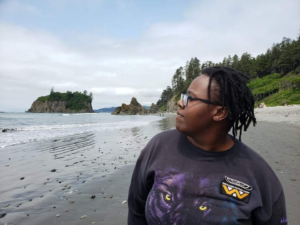So, love’s great, right? All types. It’s a fascinating quirk of brain chemistry that leaves us caring about each other so much we’ll sacrifice resources and fight against oppression for someone else’s wellbeing. Spending time with people you love is, to my mind, what life is all about. I just want to preface this with that little disclaimer, so nobody feels like I’m attacking love or romance.
Let’s talk about how we often centralize romance in fiction, how friendships get short shrift, and how the romance that we get is usually pretty one dimensional. First, let me own a bias. I’m asexual and aromantic. If you’re not familiar, that means I don’t experience sexual or romantic attraction. Platonic love is my everything. So, romance and sex don’t usually top the list of priorities for me in any storytelling context. That said, from a distance, I’m all for it. Unfortunately, fiction has gotten into some bad habits when it comes to dealing with friendships and romantic relationships.
Friendships are rarely given the focus they deserve. They are one of the most common types of relationships people have in their lives, and yet rarely do they get any nuance. In most fiction, friends are just there. They’re taken for granted. A friend is a person you talk to about your dating angst. It’s not uncommon in a lot of fiction for the entirety of two people’s platonic relationship to consist of them talking about their paramours. I’m not saying friends don’t do that with each other, but is that everything you do with your friends? In reality, friendships have just as much drama and excitement as romantic relationships. There is a moment when two people become friends, and it’s an exciting and fraught moment filled with insecurity, hope, and intrigue. There are events that cause those relationships to deepen, and tragically sometimes friendships end, and those endings can be heartbreaking.
Meanwhile the general lack of focus on platonic connection undercuts romantic relationships. Healthy romantic relationships have a platonic component. The old cliché is two people don’t get along, but it secretly means they like each other. In every longstanding romantic relationship I’ve ever encountered, the people involved liked one another. They had common interests. Two people have to be something when they’re not in the throes of sexual ecstasy or performing grand romantic gestures. Most of us are going to spend the lion’s share of our time together in sweatpants farting into the couch cushions, a set of circumstances that is far from the pinnacle of grand romance.
Sometime when you’re reading a romance novel, a story with romantic subplot, or watching a movie or television show that falls into the trope “two good looking people alone in a room: they’ve got to get together,” ask yourself, “Do these two actually have anything in common?” To be clear, I’m not saying everything in common. Great friendships are often defined by the differences between people, but amidst the differences there have to be points of commonality.
 So, why does this happen? The honest answer: it’s easy tension. Two good looking people, they don’t get along, but they’re so good looking. How could they not be interested in each other? It’s plausible they would date, then their totally incompatible personalities give writers a deep well of conflict and drama to draw from. And frankly, that’s okay. Who among us hasn’t leaned into a trope or two? Let those who have no ink on their fingers throw the first pen. However, it does become a problem when it’s done so ubiquitously that it starts to influence people’s conception of real-world relationships.
So, why does this happen? The honest answer: it’s easy tension. Two good looking people, they don’t get along, but they’re so good looking. How could they not be interested in each other? It’s plausible they would date, then their totally incompatible personalities give writers a deep well of conflict and drama to draw from. And frankly, that’s okay. Who among us hasn’t leaned into a trope or two? Let those who have no ink on their fingers throw the first pen. However, it does become a problem when it’s done so ubiquitously that it starts to influence people’s conception of real-world relationships.
Here’s the thing: fiction matters. It has real-world implications. Fiction without diversity normalizes a segregated world. Fiction with diversity challenges the status quo. Fiction rife with fundamentally incompatible romantic relationships makes fraught, tense, and incompatible romantic relationships seem normal. Meanwhile, when we treat friendships like they’re set dressing, we end up with a society where nobody puts the time and effort into maintaining friendships that they deserve.
So, what’s to be done? Well, next time you’re writing a romantic relationship, ask yourself, “What do these two do when they’re just hanging out?” In the space between grand romantic gestures and passionate lovemaking, who are they to each other? Do they like the same movies? Maybe they both like to cook. Maybe they’re big board game nerds. That doesn’t mean you can’t have the grand romantic gestures and the passionate lovemaking; just add the platonic love as well.
Next time you’re writing a friendship, ask yourself, “What holds these two together as friends?” There must have been moments in the past when they could have drifted apart. Why didn’t they? What do they see in each other that the myriad other people they’ve met in their lives didn’t quite appreciate? Who is this friend to your protagonist besides a useful literary device to move the plot along or an excuse to explicitly state some romantic subtext?
I’m not trying to lay all the problems of the world at fiction’s feet. There are a lot of forces in our society that diminish the significance of friendship and promote the idea that every problem in life can be solved by getting a date. But all too often, fiction isn’t helping. It’s not that hard to add that extra bit of nuance to relationships. There are good stories to be told that center friendships, even if they include romance. Superficial romantic relationships, with drama built on cheap interpersonal tension, are lazy. Spend a few moments thinking about your best friend. Think about how they make you feel. I’ll bet it’s a love story for the ages.
 BIO: Vincent Scott is a comedy science fiction writer and green tea… well, addict is a strong word, let’s say enthusiast. His new novel The Hereafter Bytes is being launched via Kickstarter to raise funds for a full release later in 2020. The campaign runs from March 11th to April 1st, 2020 and can be found here.
BIO: Vincent Scott is a comedy science fiction writer and green tea… well, addict is a strong word, let’s say enthusiast. His new novel The Hereafter Bytes is being launched via Kickstarter to raise funds for a full release later in 2020. The campaign runs from March 11th to April 1st, 2020 and can be found here.
You can connect with Vincent at twitter.com/writeitowldown.
If you’re an author or other fantasy and science fiction creative, and want to do a guest blog post, please check out the guest blog post guidelines. Or if you’re looking for community from other F&SF writers, sign up for the Rambo Academy for Wayward Writers Critclub!







